It’s the End of the World As We Know It…
Anticipating CTHULHU’S REIGN (Part 2)

“And in those days shall men seek death, and shall not find it; and shall desire to die, and death shall flee from them.”
–Revelations 9.6
“Who will survive and what will be left of them?”
–White Zombie, “Real Solution #9”
Ask 15 writers what the End of the World will be like, and you’ll get 15 different answers. That’s exactly what editor Darrell Schweitzer did when putting together his latest anthology. Horror and Strangeness were the only constants. Oh, and Cthulhu, of course…
Last week I introduced CTHULHU’S REIGN, a new anthology from DAW Books featuring 15 new tales sharing a common theme: Great Cthulhu has risen and reclaimed the world for the Old Ones. What happens next?
This H. P. Lovecraft-inspired collection is an essential read for horror fans, Lovecraft fans, and anyone interested in survivalist fiction. Although surviving in a universe warped and twisted by the Great Old Ones may not even be possible. As the saying goes: “Evolve or die.” But even death may be no escape from Cthulhu’s World.
This week (and next) I’m talking with some of the authors who wrote stories for CTHULHU’S REIGN about what inspired their tales of terror and madness.
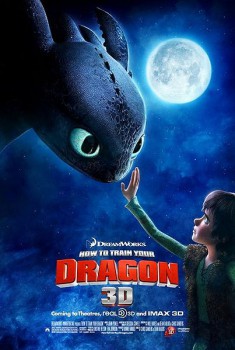 How to Train Your Dragon (2010)
How to Train Your Dragon (2010)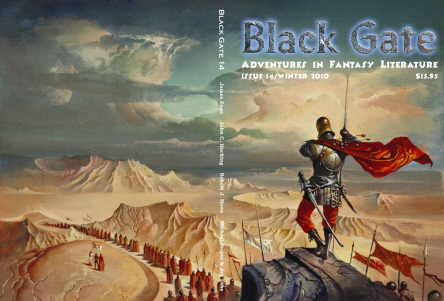 Black Gate 14 is now shipping. Foreign and domestic subscriber copies went in the mail last week.
Black Gate 14 is now shipping. Foreign and domestic subscriber copies went in the mail last week.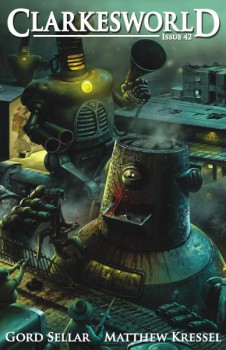 Over at
Over at  Occasionally a bit of book-to-film news seems to come out of nowhere and create some genuine surprise. So, amidst reports of this-or-that being remade, rebooted, retread, reimagined, or reduxed (what is it this week? Lord of the Ring Tones? Aliens vs. Predator vs. Chucky vs. Tony Montana? T.J. Hooker on Mars?) it seems there is actually an original, never done before, not part of a hot franchise redo, SF book adaptation slated for television. Gordon R. Dickson’s Childe Cycle, better known by the name of the first book in the series, Dorsai!, is being made into a live action series by MDR productions (
Occasionally a bit of book-to-film news seems to come out of nowhere and create some genuine surprise. So, amidst reports of this-or-that being remade, rebooted, retread, reimagined, or reduxed (what is it this week? Lord of the Ring Tones? Aliens vs. Predator vs. Chucky vs. Tony Montana? T.J. Hooker on Mars?) it seems there is actually an original, never done before, not part of a hot franchise redo, SF book adaptation slated for television. Gordon R. Dickson’s Childe Cycle, better known by the name of the first book in the series, Dorsai!, is being made into a live action series by MDR productions (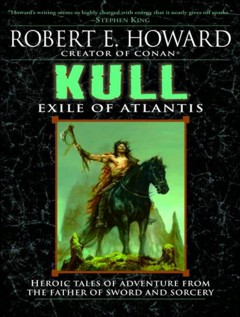 I wanted to point all of you to the fine series of articles over on
I wanted to point all of you to the fine series of articles over on 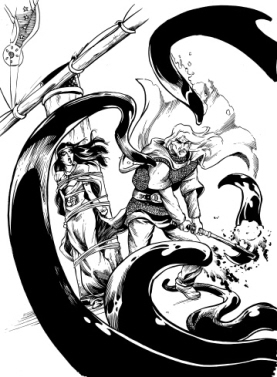 The Sorcerer’s Guild announced this week that John C. Hocking’s “The Face in the Sea” (from Black Gate 13) has been nominated for the Harper’s Pen Award (formerly the Ham-Sized Fist Award).
The Sorcerer’s Guild announced this week that John C. Hocking’s “The Face in the Sea” (from Black Gate 13) has been nominated for the Harper’s Pen Award (formerly the Ham-Sized Fist Award).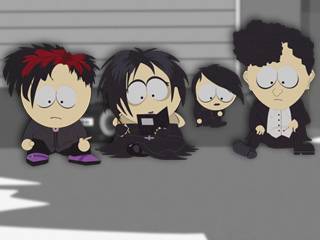 There’s nothing like being faced with your own weirdness.
There’s nothing like being faced with your own weirdness.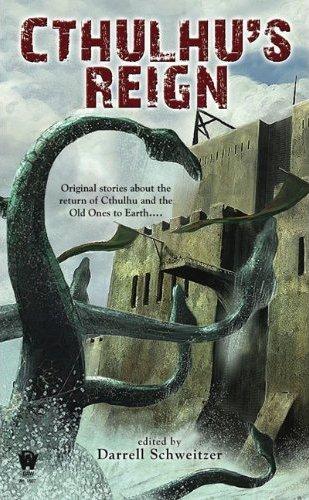
 Most pulp writers of the 1930s were itching to break into the hardcover book market. Since reprints of pulp stories in book form were rare at the time, these writers did not expect that their work for the newsstands would survive past an issue’s sell-date. They felt comfortable re-working and expanding on them to create novels. Raymond Chandler famously called his process of novelizing his already published work as “cannibalizing.” He welded together different short stories, often keeping large sections of text intact with only slight alterations. Other authors took ideas that they liked, or else felt they could do more justice to in the novel format, and enlarged them into books without text carry-over. Robert E. Howard used “The Scarlet Citadel” as a guide for The Hour of the Dragon. And Cornell Woolrich turned many of his short stories into novels. “Face Work” became The Black Angel. “Call Me Patrice” became I Married a Dead Man. “The Street of Jungle Death” became Black Alibi. And “Speak to Me of Death” became Woolrich’s most depressing novel (which is really saying something), Night Has a Thousand Eyes.
Most pulp writers of the 1930s were itching to break into the hardcover book market. Since reprints of pulp stories in book form were rare at the time, these writers did not expect that their work for the newsstands would survive past an issue’s sell-date. They felt comfortable re-working and expanding on them to create novels. Raymond Chandler famously called his process of novelizing his already published work as “cannibalizing.” He welded together different short stories, often keeping large sections of text intact with only slight alterations. Other authors took ideas that they liked, or else felt they could do more justice to in the novel format, and enlarged them into books without text carry-over. Robert E. Howard used “The Scarlet Citadel” as a guide for The Hour of the Dragon. And Cornell Woolrich turned many of his short stories into novels. “Face Work” became The Black Angel. “Call Me Patrice” became I Married a Dead Man. “The Street of Jungle Death” became Black Alibi. And “Speak to Me of Death” became Woolrich’s most depressing novel (which is really saying something), Night Has a Thousand Eyes.